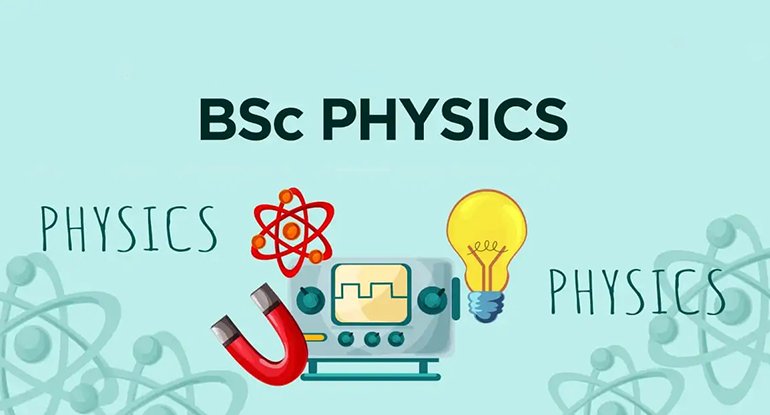
The Department of Physics was established in the year 2009, Since then the Department has grown tremendously and now offers innovative papers. Every year the students of the Department participate in various activities outside the classroom such as organising field visits to renowned research institutes and centres. Students explore avenues for research which in turn gears them towards higher education in Physics. The Department also collaborates with various industries and conducts workshops and projects which provide hands-on experience, enable students to explore career opportunities and develop entrepreneurial skills. The students are given several opportunities to realise their potential through inter-collegiate cultural programmes. The focus is on exhibitions, paper presentations and lectures on current topics in Physics, which expose students to the various research avenues and current trends in the subject.
Typically, BSc Physics is a three-year program.
Study of motion and forces in classical physics.
Principles of electricity and magnetism.
Introduction to the principles of quantum physics.
Study of heat, temperature, and statistical mechanics.
Properties and behavior of light.
Study of atomic and nuclear structure.
Application of mathematical methods in physics.
Practical laboratory work to reinforce theoretical concepts.
Basics of electronic circuits and devices.
Some programs include hands-on research projects or internships.
Conducting experiments and contributing to scientific advancements.
Assisting in experimental work in laboratories.
At the school or college level. A postgraduate degree (MSc, PhD) may be required for higher education positions.
Applying physics principles in various engineering fields.
Working on the design and development of electronic systems.
Analyzing and interpreting data using statistical methods.
Utilizing analytical and problem-solving skills in software development.
Ensuring the safe and effective use of radiation in medical procedures.
Studying celestial bodies and phenomena.
Investigating the physical properties of celestial objects.
Analyzing and interpreting environmental data.
In government research institutions or laboratories.
Opportunities in defense-related research and development.
Analyzing and optimizing energy systems.
Focusing on sustainable energy solutions.
Designing and maintaining telecommunications systems.
Studying the properties and applications of materials.
Applying mathematical and statistical models to financial markets.
Contributing to space exploration and research.
Communicating scientific concepts to the public.
Establishing ventures related to technology or physics applications.